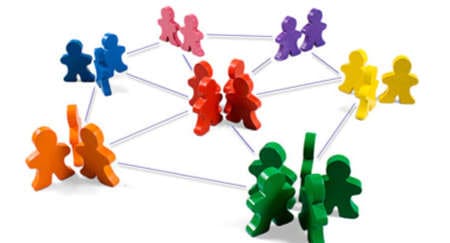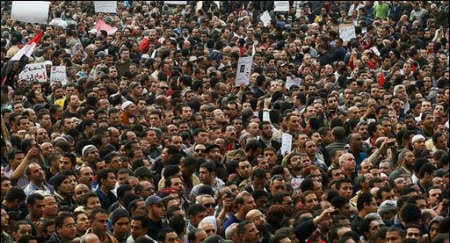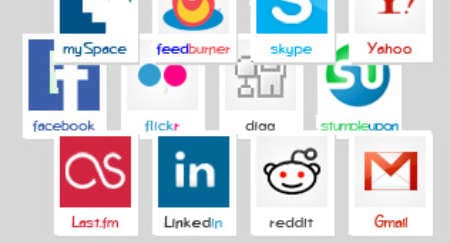Social media has made major changes says Susannah Vila. It’s importance in recent uprisings shouldn’t be underplayed. But these same events have also shown that one of social media’s strengths – being leaderless – can also prove one of its weaknesses.
The idea behind musician Gil Scott Heron’s 1971 song, "the revolution will not be televised" wasn’t that it would be difficult to find images of protest on TV so much as that those images, driven by the needs of advertisers as they were, could not truly represent street protest. “The revolution” will not “go better with coke” or “fight the germs that cause bad breath,” goes the song. “The revolution” is people, out on the street and “looking for a brighter day.”
Those people, as revolutions in North Africa have made clear, are today sending out images, videos, Tweets and status updates directly - unmediated by Coke ads - to the rest of the world. It may not be all of them, but it is enough of them, and there's reason to have confidence in the ability of these well intentioned protesters and supporters to Tweet, text Facebook messages, and otherwise upload a representation of a revolution that is true to the people living it.
Be less sanguine, however, about the prospects for what comes thereafter.
That the world has followed uprisings in North Africa and the Middle East in the order that they appeared, always moving onto the next pressing story, raises concerns about the consequences of today’s media environment for democratic transitions (or the lack thereof). For many reasons, it’s harder to Tweet the reconstruction than the revolution. First, however it’s worth highlighting the role that online tools and mobile phones did play in the latter.
"Technology is good at spreading word in a dictatorship about ... how many people are disaffected and do not buy the propaganda"
In Tunisia and Egypt, social media allowed information to spread much more quickly. ‘I hadn’t even heard of Sidi Bouzid,’ a Tunisian activist told me of the town where the 28 year old unemployed Mohamed Bouazizi burned himself alive in front of a government office building on December 17th, setting off the wave of protests that ultimately ousted President Ben Ali.
It didn’t matter that Bouazizi himself wasn’t a frequent internet user, much less an online activist. What mattered was that news of his action spread rapidly from rural Tunisia into the cities, infuriating a bulging youth population that was already on the verge of fury.
Soon, thousands of young people were protesting in the name of what happened in Sidi Bouzid and calling for the world to take notice. When a few news outlets did, they covered the protests not by sending in their own crews but by mining the Twitter hashtag ( #Sidibouzid) and videos uploaded to Facebook and YouTube from the ground.
In what amounted to a virtuous circle of media production and dissemination, networks like Al Jazeera and France 24 played protesters’ cellphone videos on television, protesters uploaded more videos from the street, networks showed those, and so on. This continued until a lot more people were following #Sidibouzid than might have been otherwise, and a lot more people were attending and uploading information from the streets of Tunisia than may have been otherwise.
Second, new communications tools allow people to find each other and engage in conversations about current events in environments where repression makes this much more difficult. In Egypt, for example, you couldn’t gather in groups of more than 5 according to emergency law but, over the course of the 6 year period between the emergence of the Egyptian Movement for Change in 2004 and summer 2010’s campaign against police brutality, the number of Egyptians on Facebook increased by roughly 4 million.
In virtual forums, these wired Egyptians -- generally younger and more educated - connected with one another and voiced anger online when they couldn’t do it on the street. Journalist Nicholas Kristof, who covered Tiannamen square protests in 1989 and has been in Egypt and Bahrain this year, highlighted this phenomenon in a conversation I had with him, saying “technology is good at spreading word in a dictatorship about...how many people are disaffected and do not buy the propaganda.”
While young and educated Egyptians exchanged ideas online, the rest of the population’s economic, social and political frustrations swelled. By 2011, when unrest ignited, a mutually reinforcing channel of communication had begun to form between the online minority and everyone else. True, most were not on Facebook or Twitter, but information spread from those networks into society at large.
As an example, recall an image that emerged on Twitter during the height of the Egyptian protests, featuring an old, weathered looking man carrying a sign that read “thank you Egyptian Facebook youth.” For him, Facebook didn’t play a role in his perception of the revolution because he was using it but rather because it helped the young people who ignited it to mobilise one another.
Growing up entitled to the immediacy provided by online tools makes you more likely to fight for it if revoked.
Stories (like those of Mohamed Bouzizi or Khaled Said) and people fuel revolution because their behavior makes change, and a fundamentally altered information environment shapes human behavior. The networked media environment itself can have positive consequences for activism.
In Egypt, the internet was not widely censored. Young people were accustomed to the immediacy of Facebook and Twitter, so when they lost access to it as a result of President Mubarak’s attempt to quash the protests by turning off the net,these “keyboard activists” flooded the streets. Growing up entitled to the immediacy provided by online tools makes you more likely to fight for it if revoked.
But can keyboard activists govern a country, and can they do so without the support of the international audiences that were so glued to the events of their revolution? This is the question that onlookers should now be grappling with.
The aforementioned benefits of social media for mobilising and organising are on balance more detrimental for governance. Look at Egypt, where revolutionaries know very well that their revolution is not over but can’t seem to identify the right political leadership to fill a vacuum of power within their ranks. It’s far from outlandish to say that their attempts at doing this would be more successful if they had someone at the top of the revolutionary leadership structure. And yet this lack of a traditional, hierarchical structure is one of the most important marks of the January 25th uprising and 21st century movements in general.
It’s no longer surprising for a Facebook forum to catch the right side of circumstance and explode in numbers, often leading to offline change and producing surprising, unlikely, and even accidental leaders. By the same token, it should not be surprising that these leaders don’t have the skills necessary to leverage their new followings, to build capacity and grow their campaign into a sustainable organisation or government.



